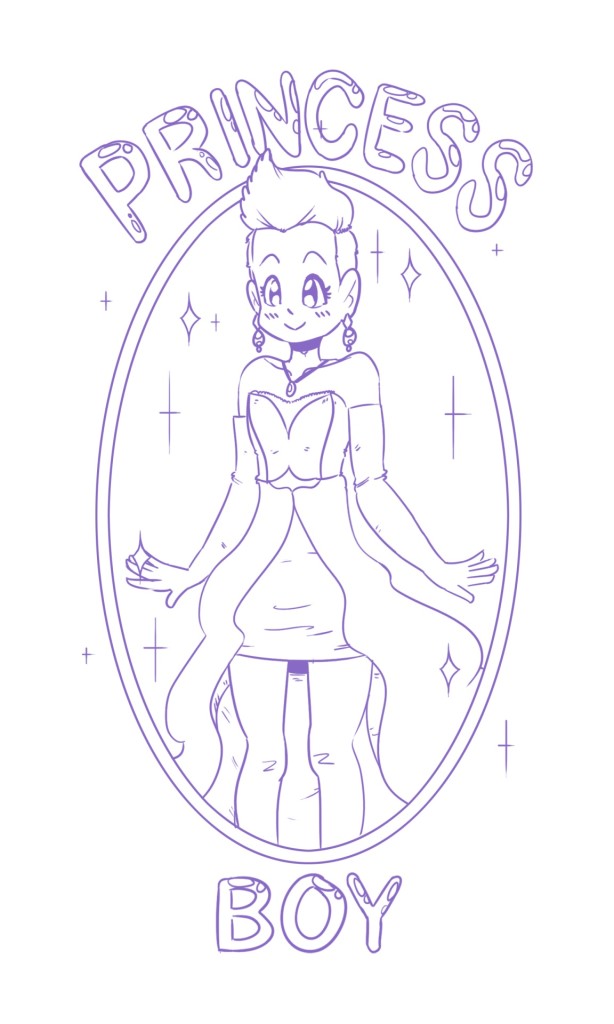Content Warning: suicide, transphobia, transmisogyny
I.
At some point during the winter break I got an idea to write a column about the Internet. It may have been simply because, like most people, having more free time means I’m on the Internet more, but regardless, it felt like something that needed to be looked into, as a student issue, an identity issue, a cultural issue, and as a social justice issue.
I often find myself frustrated by the way the digital realm is pushed into a side category, as if it’s somehow apart from “real life,” “real issues,” “real organizing,” and “real action.” That notion of separation – a firm dichotomy between virtual and concrete existence – seems overly simplistic.
II.
One news story that had a particularly big part for me in my decision to write about the Internet was the story of Leelah Alcorn, a transgender teen from Ohio who scheduled a suicide note to be published on Tumblr before taking her own life on December 28.
The note, which has since been circulated widely, details Alcorn’s experience growing up in a conservative Christian household where her parents refused to accept her identity and denied her any form of transition treatment.
“When I was 14, I learned what transgender meant and cried of happiness. After 10 years of confusion I finally understood who I was,” Alcorn writes on her Tumblr. “I immediately told my mom, and she reacted extremely negatively, telling me that it was a phase, that I would never truly be a girl, that God doesn’t make mistakes, that I am wrong.”
Alcorn was sent to a slew of Christian therapists (“I only got more christians telling me that I was selfish and wrong and that I should look to God for help,” she writes) by her mom, which did little to help her trouble with depression.
As a transitional step, Alcorn came out as gay at the age of 16, which lead to her being pulled from school, isolated from friends, and prohibited from accessing social media by her parents. Online, Alcorn had found supportive folk and a culture of acceptance, and the punishment she received was devastating. “They felt like I was attacking their image, and that I was an embarrassment to them. They wanted me to be their perfect little straight christian boy,” she writes in her suicide note.
The note (which has since been archived after being removed from Tumblr – more on this in a bit) finishes with an appeal for change:
“My death needs to mean something. My death needs to be counted in the number of transgender people who commit suicide this year. I want someone to look at that number and say ‘that’s fucked up’ and fix it. Fix society. Please.”
It’s a difficult note to read.
III.
As a cis male, I’ll never be able to come close to understanding what Alcorn felt, and that’s part of why I feel that reading this note is so crucial. The structural violence that Alcorn was victim to is something I have the privilege of not experiencing, which makes understanding that violence and my privilege all the more necessary. By reading Alcorn’s blog, we only see a fragment of who she was, but it’s a look into her lived experienced; there’s a vitality to her writing and illustrations – her suicide note especially – which resists the weight and stillness of her passing.
Scrolling through Alcorn’s blog, which is made up of pictures, .gifs, photos, anime (lots of Sailor Moon), art (mostly drawings), and short comments like “can i please sleep for more than two hours per night pls and thnk u”, everything feels very personal. But at the same time, there’s a resounding sense that this could be anyone. It feels almost universal, in the way that this isn’t an isolated case, those who are still struggling, and this is still going on.
Part of this vitality relates, I think, to the way her blog operates as a curated assemblage of re-posted and original content: a set of woven ideas and identities that continues to live as cultural object and digital morsel. This isn’t exclusive to blogging either. Digital production is by its nature dynamic, the product of hyperlinking, inter-media, and fast-paced information economies.
Digital presence mediates identity. There’s a facelessness to digital interaction – not that Alcorn’s blog was anonymous, her name was right on the front – but a facelessness in that it’s not as grounded in physical presence (embodied) or immediacy. There’s more buoyancy than that, because identity becomes more tied to expression.
When we consider these links between human expression and identity (including the way that Alcorn’s relationship with her parents had to do with “image” and identity) the sharing and archiving capacities of the online world and the communities it’s composed of becomes immensely valuable. Alcorn’s life ended too short; that’s clear to everyone. But there’s solace to be found in that a sliver of her life and legacy can still be accessed.
IV.
Since Alcorn’s death, a number of people have been calling for action against her parents. The Facebook page of Alcorn’s mother, was bombarded with posts from users who had heard about Alcorn’s story. Essentially, Alcorn’s mom was doxed: once her personal page was found, people started harassing her in retaliation for the suicide of her daughter, who she continued to insist publicly was “a good boy.” Even after her death, Leelah Alcorn’s identity continues to be erased.
Many called for the prosecution of her parents on the ground of child abuse. Even though such discussions have long been taking place within the trans community, Dan Savage, of Savage Love fame, has been getting the bulk of the media coverage for a tweet he wrote demanding Alcorn’s parents to be charged, and went as far as to write that Alcorn’s parents “threw her in front of the truck” and should be “shamed” for it. The thing is, Savage (a cis male) has been called out repeatedly for transphobic remarks, and his comments have led him to become a part of basically every news article about Alcorn.
Whether at Savage’s suggestion or not, a large number of folks have gone after Alcorn’s parents directly, and Alcorn’s funereal was recently moved to a private service after the family received threats, and had reason to believe the funeral would be disrupted. I don’t support these threats, nor the disruption of funerals, but there’s a lot to be said for anger and frustration as forces for productive change. There’s reason to be frustrated, too. Conversion therapy, used to alter one’s sexual orientation or gender, is based on the idea that being LGBTQ2S is a “defect or disorder.” It’s also been thrown out by basically every reputable psychiatric and counselling organization, and completely deserves the criticism it’s been receiving since Alcorn’s death (there’s even a petition circulating). I also think that prosecuting parents who subject their children to conversion therapy or other similar measures should be an option that’s considered. Change on a large scale is needed.
Going after one teen’s parents is little more than a quick fix though. I can’t help but think that the direct, personal, and aggressive accusations we’re seeing here are not answering Alcorn’s call to “[f]ix society.” Rather than calling into question the systems that give rise to them, Alcorn’s parents have been positioned as the focus of a sensationalized story.
V.
The tactic of going after Alcorn’s parents (especially on social media) is representative of what I see as one of two major narratives about the Internet.
The first narrative is an idealistic one about how the Internet is ushering in a major paradigm shift. You might be familiar with this narrative through professors who just can’t stop talking about “new media.” These are the folks who often see digital spaces as a completely new, pure, utopic environment where everything and anything is possible: a terra nullius (the colonial implications of this phrase not to be forgotten here) where the oppressive power dynamics of “real life” are conspicuously absent
What we’re seeing in retaliation for the death of Leelah Alcorn, on the other hand, feeds into a second, less popular narrative, which proposes that the Internet isn’t all that it’s ‘cracked up to be’. In this narrative, the Internet is simply an amplification of (usually negative) human tendencies (thrill-seeking, mindless, racist, sexist, discriminatory, cruel, etc.). Ultimately, the Internet is just another communication tool: no drastic shift, no change in the status quo.
Subscribing completely to either of these narratives is going to cause some problems no matter what. I’m not sure which I align with more. What appears to me to be of importance, in this case at least, is that Alcorn’s digital footprint – her writings, illustrations, blog – and her story, are being shared.
Online circulation (that is, what goes “viral” and what doesn’t) needs to be understood with a critical lens. It’s essential that we consider, as trans pinay writer b. binaohan does in a recent piece on Autostraddle, why the story of Leelah Alcorn, a white, able bodied trans women, has surfaced out of the mass of tragedies. The stories of trans women of colour, disabled trans folks, working class trans folks and the like are stories that we often fail to share.
Circulating these stories (and not just the tragic ones) will help to challenge the erasure of identities and the systems of oppression which depend on their erasure.
Alcorn’s Tumblr page was taken down shortly after her death, but a number of archive sites and blogs popped up, which means her page is still accessible. Alcorn’s writings and art are traces of her existence, and that makes archiving them integral. No matter how much her mom continues to misgender her, Alcorn’s story of growing up as a trans teen, of conversion therapy, of lying to her parents about her identity to stop the “derogatory speech and neglect” her parents had subject her to, and of a final apology to friends and siblings can all be preserved.
As Alcorn’s blog continues to be posted, reposted, saved and archived, the horrors of her erasure are resisted. This is where the distinction between “real” and “virtual” significance begins to collapse.
The Trans Lifeline can be reached toll-free from anywhere in Canada at 1-877-330-6366





